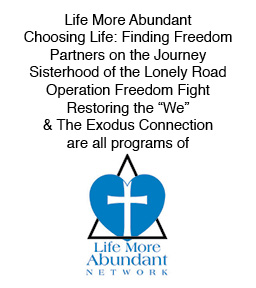The final common indicator that we’re moving toward a relapse—entitlement—is, without a doubt, the most perilous. Even though, as discussed in the last two posts, the isolation that comes from reduced accountability and the old thought patterns that our secrets reawaken certainly put us in risky territory, entitlement is the chute that is most likely to catapult us back into our old unwanted behaviors.
Entitlement is that mindset that says “I deserve.” When we start believing that we are due a “reward” because of our struggles , our accomplishments, or the injustices we perceive are being meted out to us, we are on extremely shaky ground. In fact, most relapses can be traced back to our ability to rationalize our behavior because of a strong sense that we have somehow “earned” it.
The initial seeds of entitlement can come from a variety of different sources, but there are 4 emotional strongholds that, left unchecked, seem to be especially prolific providers:
1. SELF RELIANCE (believing that we’ve got everything under control)
Self-reliance says “I can handle this.” “I’ve been doing so well that I can relax my safe-guards,” “I’ll be able to control my behaviors, now.” The only antidote to this trap is acknowledging that we do, indeed, have weaknesses that make us vulnerable; that our best thinking has often failed us, and that we need to increasingly surrender the control of our lives to God.”
2. RESENTMENT (choosing to hold on to unresolved anger about the losses, circumstances, past and future consequences, family of origin issues and unmet needs in our lives)
If we allow resentment to build, we will inevitably find ourselves looking for ways to “make up” for all the rotten things we’ve encountered. Freedom from the need to look for ways to even the score can only come as we learn how to acknowledge and successfully resolve the past and present anger we are feeling.
3. STRESS (pressure or change—even “good” change—takes us out of our comfort zone and makes us more vulnerable to our old coping skills)
Honing stress management skills like deep breathing and other relaxation techniques, prayer, and meditation can help us effectively deal with stress before it gets out of control and takes a toll on our physical, emotional and spiritual lives.
4. DEPRIVATION (trying to abstain from an entire facet of life, like sex, eating or socializing, as a way to avoid a compulsion, creates an unhealthy fixation on the object of our struggle that will inevitably lead us back to our old behaviors.)
True healing allows us to build a healthy relationship with that part of our life instead of creating a fear-ridden obsession.
In reality, successful relapse prevention boils down to learning, bit by bit, to “take care of the little things” —the self-reliance, resentment, stress, deprivation, secrets and isolation that make us vulnerable to old thoughts and behaviors. Paying attention to resolving the small issues in our lives will help us avoid the BIG consequences that returning to the addiction will bring.
“Pride goes before destruction, a haughty spirit before a fall.” —Proverbs 16: 17-19


Leave A Response